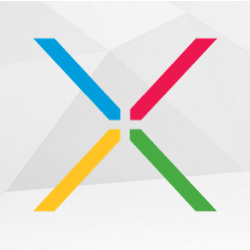
Could five new Nexus devices possibly debut November 5th?
For the second time in a week -- once being a rarity -- I write about new Android device rumors. There's renewed buzz about five Nexus branded devices coming within the month. Talk of five, instead of the typical one, started in May from Wall Street Journal. Soon after, writing for Talk Android, Robert Nazarian claimed that five new Nexus devices would come on November 5, which is the fifth anniversary of Android's release -- well, in beta. The OS wasn't officially available for public consumption until the T-Mobile G1 launched about 10 months later.
This rumor actually makes sense to me, not that I really believe it. Nazarian cited a single source and hasn't much pursued the topic since. But it's oh-so convenient the idea that five Nexus devices will debut as a fifth-anniversary thing. It's a tempting enough rumor. Do you believe it, or even hope it's true?

Is new Google Nexus device imminent? Sensible?
I typically don't write about rumors, since too many are obvious (and so look like someone simply guessed and wrote a story), while others aren't adequately sourced (who and why is uncertain). But readers have asked me today about the next Google Nexus device following new rumors it's coming within 30 days.
Duh, I can reasonably speculate that based on Google's past two Nexus phone launches October is reasonable debut. But something is different this year: Way fewer rumors, which could mean: 1) There is no imminent Nexus; 2) Google has cooked up something special. Or 3) You tell me another reason. It's the silence that has my interest more than the noise.
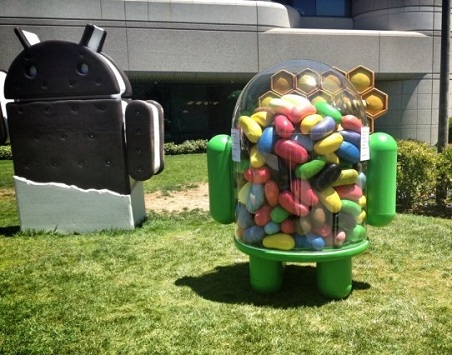
Google posts Jelly Bean factory image for Verizon Samsung Galaxy Nexus: Update at will!
Great news for Verizon Wireless Samsung Galaxy Nexus owners -- Google posted the Android 4.1 Jelly Bean factory image for the "forgotten" users of the big red.
The LTE Galaxy Nexus can be updated to Android 4.1.1 Jelly Bean, build number JRO03O using the factory image posted on Google Developers website. The recent development comes almost two months after the Mountain View, Calif.-based corporation released the factory images for the Samsung/Google Galaxy Nexus HSPA+ model, and represents a significant delay for the update to reach the LTE model.
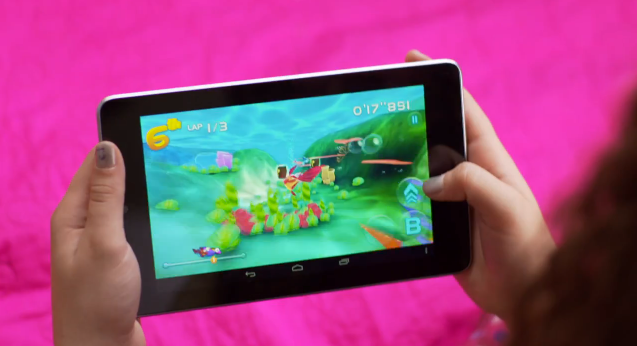
Google Nexus 7 launches in Android-dominated Japan
In the land of the rising sun a new tablet --the Google Nexus 7-- is making its first appearance.
The popular 7-inch tablet sporting Android 4.1 Jelly Bean was launched by Google in Japan. Like with the European launch, the Nexus 7 only comes in one flavor -- the 16GB model and it is available for purchase directly from Google's local Play Store for a price of 19,800 Japanese Yen, which is roughly $255.
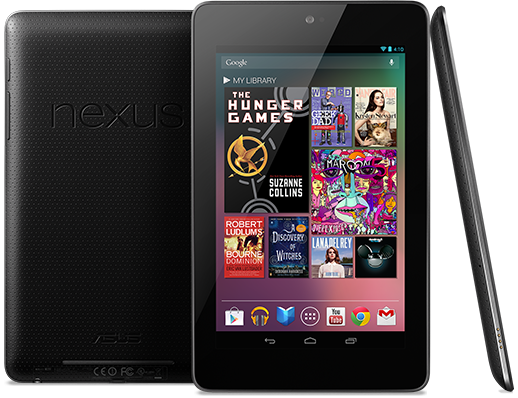
Nexus 7 goes on sale in France, Germany and Spain
The popular Google Nexus 7 tablet is now available in three new European locations: France, Germany and Spain, for a total of seven. The ASUS-made tablet is available for purchase directly from Google's own Play Store.
Only the currency has changed from the US pricing, with the 8GB Google Nexus 7 selling for EUR199, while the 16GB model will set you back EUR249.

Nexus 7 is confusing
I must preface by clearly stating that I absolutely love my Nexus 7. I recommended it to dozens of people, and fully plan to hand out a few as birthday gifts before the year is over. The tablet is incredibly solid, and worth every penny of the $200 selling price. As far as hardware is concerned, Nexus 7 is remarkable in nearly every aspect.
That said, Google’s approach to Android 4.1 on this device leaves me with a sense of practiced uncertainty and no clue where the tablet fits into the Android ecosystem.
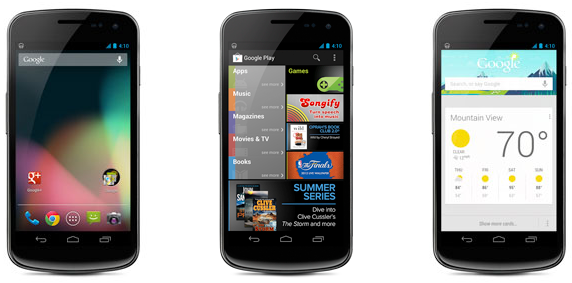
How to install Jelly Bean on Galaxy Nexus
The Samsung/Google Galaxy Nexus and Android 4.1 Jelly Bean are a remarkable combination of hardware and software. If you're one of the less fortunate Galaxy Nexus owners and you haven't yet received Android 4.1 Jelly Bean, or you just want to restore from a custom ROM, this guide will show you how to install the stock Android 4.1 Jelly Bean on your Galaxy Nexus.
Before actually getting to install Android 4.1 Jelly Bean, you should know that this process will erase all the data on your Galaxy Nexus, so take notice and backup the contents of your smartphone before performing the install. The easiest and most conveniently available method to perform a backup is to select "MTP mode" when you connect your Galaxy Nexus to the computer and then copy all the data that you want to backup to your computer.

Galaxy Nexus HSPA+ with Jelly Bean review
BetaNews certainly loves the Samsung Galaxy Nexus. Joe Wilcox uses one, Tim Conneally uses one, now I use one. I wanted a smartphone that could easily deal with day-to-day tasks, had decent enough battery life that could get me through the day, had good build quality, and most importantly, received timely software updates.
As some of you may have already read, my Galaxy Nexus came with Android 4.0 Ice Cream Sandwich, but I managed to update it to Android 4.1.1 Jelly Bean. I wanted to experience it without the placebo effect induced by claims of a faster interface. So how does it stand up to my four criteria?
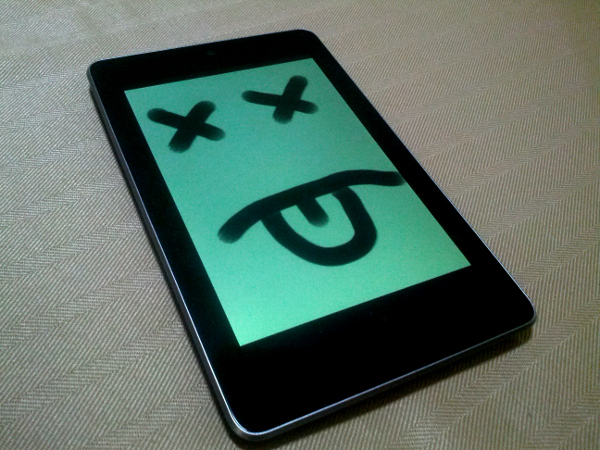
The Nexus 7's biggest problem is Google
We've heard a handful of complaints about Google's Nexus 7 screen dimming and flickering, but they pale in comparison to this story from New York tech industry professional Ed Zitron, who is currently dwelling in Nexus 7 support hell.
I was really excited about the Nexus 7, for just two hundred dollars I could get a device that I could sling in my bag, play with, enjoy mindlessly and then put away --a nicety, a frivolity, something enjoyable and cheap that I wouldn’t worry about.
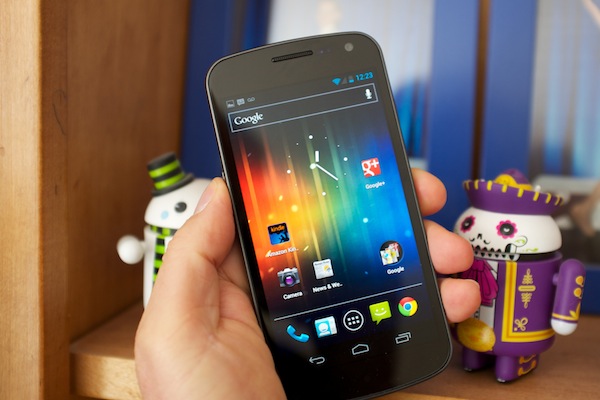
Who's taking care of my Galaxy Nexus update?
At the moment, the Samsung Galaxy Nexus is the only Android smartphone that can be experienced the way Google wants. Of course, there were previous Nexus iterations like the Nexus S and Nexus One, but with the Galaxy Nexus, Google got it right. Well, right enough that I recently bought one.
Your first days with any new device are the honeymoon. There’s the initial joy of opening the package and peeling off the plastic sheets on both sides and looking inside the box for accessories. Then, the battery is in its rightful place, the back cover is on, and at a touch of the power button the SAMOLED displays "Google." Things get interesting, the Android 4.0 Ice Cream Sandwich animation pops up, I run through the initial set up and bang, I am now using my new shiny Galaxy Nexus.

Why does Google subsidize Nexus 7?
To understand why Google subsidized the Nexus 7, you have to first understand what makes the tablet market unique from all other forms of personal computing. All personal computing devices fall into three major categories: PC, cellphone, and tablet (with possibilities for more in the future such as “smartglasses”, which Google and others are developing).
The PC market is mature, there have been very few changes since the nineties; functionality has steadily improved and the only big change was the advent of the laptop, which changed the form, although, it didn’t change the two main players: Apple and Microsoft, with Microsoft’s hardware manufacturers also playing an important role. The players in the PC market have changed little (sure HP bought Compaq and IBM sold out to Lenovo). It would take a truly revolutionary product to change anything even though there have been attempts -- the constant presence of Linux, and the recent (relatively) introduction of Chromebooks for example -- none have have managed to have any impact.

When is a phone camera enough?
That's the question I repeatedly asked while attending San Diego Comic-Con, which wrapped up about two weeks ago. Ian Lewis' "Let’s not blindly give every latest tech marketing prophet his profit", posted here Sunday afternoon, has me thinking about phone as camera again, in context of what's good enough.
A year ago, I took to Comic-Con the Fuji X100 to shoot photos and Sony HDR-TG1 camcorder for videos. I processed and uploaded content on a Mac laptop. But July 2012, I was a month into an Apple boycott over patent bullying. I still have the devices but now use the Samsung Series 5 550 Chromebook. It's plenty good enough for processing photos using cloud services to edit, but I wasn't too sure about videos and decided not even to bother. During Google I/O I shot video on Galaxy Nexus, uploading directly to YouTube. That worked out just fine.
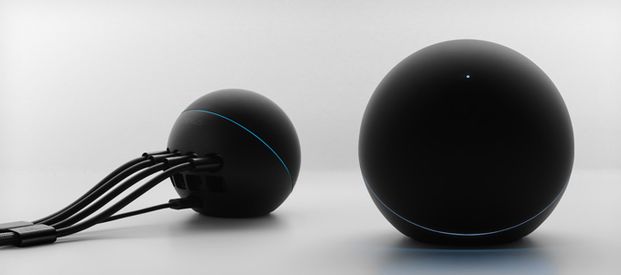
Google stops selling Nexus Q
Night before last, I rented "Batman Begins" in glorious high-definition, to refresh my memory and complete recent watching "The Dark Night Rises". I didn't use Apple TV, Google TV, Roku or any other set-top box but the ultra-cool, pulsing blue-LED lit Nexus Q, using my Android phone as remote. Once again, the entertainment device hugely satisfied, and I hat tipped to invisible Nexus Q owners sharing similar experience.
Except they won't. Perhaps not anytime soon. For the second time in just two weeks, Google yanked a new product from the Play store. First the 16GB Nexus 7, which is available for sale again, and now the great black sphere -- the Nexus Q. If you preordered, Google won't disappoint. A free one, like the Q I got at Google I/O last month, is headed your way. For everyone else, the device is delayed, its status changed to "coming soon" at Google Play.
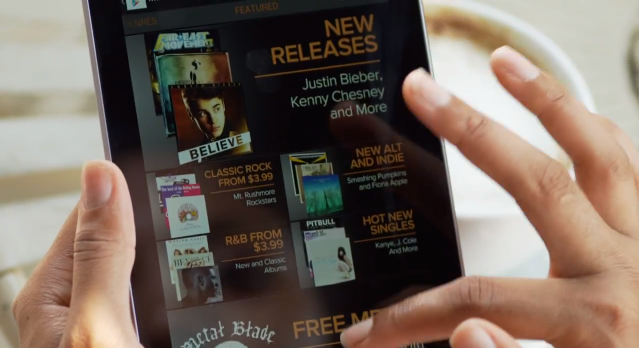
Google resumes 16GB Nexus 7 sales
When the larger model of the Nexus 7 vanished from the Play store a week ago, it was generally assumed that demand outstripped supply. After all, the tablet has been insanely popular since its launch, and pretty much sold out everywhere. The fact that the 8GB model was still available in the store just suggested that people were more interested in physical memory than cloud storage.
But then the conspiracy theories began to kick in. There had been a lot of complaints about the 16GB model prior to its disappearance, with most focusing on screen issues, which led my colleague Joe Wilcox to question whether the model had been withdrawn for reasons other than just overwhelming popularity. His article certainly struck a nerve and generated some interesting comments, including further complaints about the device. Could he be right? Was there more to the story than Google was telling us?
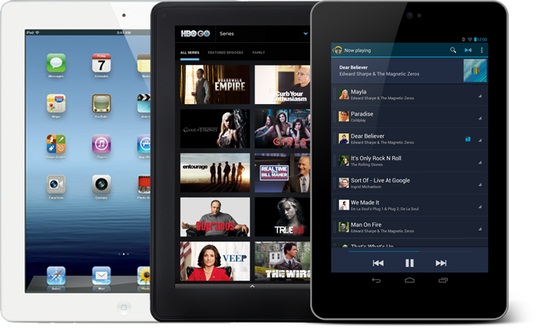
Nexus 7 will lead Android tablets to overtake iPad
Ever since the release of the Nexus 7, analysts have wondered what impact, if any, it would have on Android tablets' market share battle with the iPad. The possible release of the iPad Mini, later this year, could throw another wrench into the works. Fortunately, we have already seen an Android vs. Apple battle in the smartphone market. Let's take a look at the parallels we can draw between the smartphone and tablet market and project the possible market share trends in the tablet market.
Before we begin, we need to understand the global smartphone market share trends over the past couple of years. It is important to understand that ever since the iPhone and Android were launched, the market segmented into legacy smartphone platforms (BlackBerry, Symbian & Windows Mobile) and modern smartphone platforms (iOS, Android & Windows Phone).
